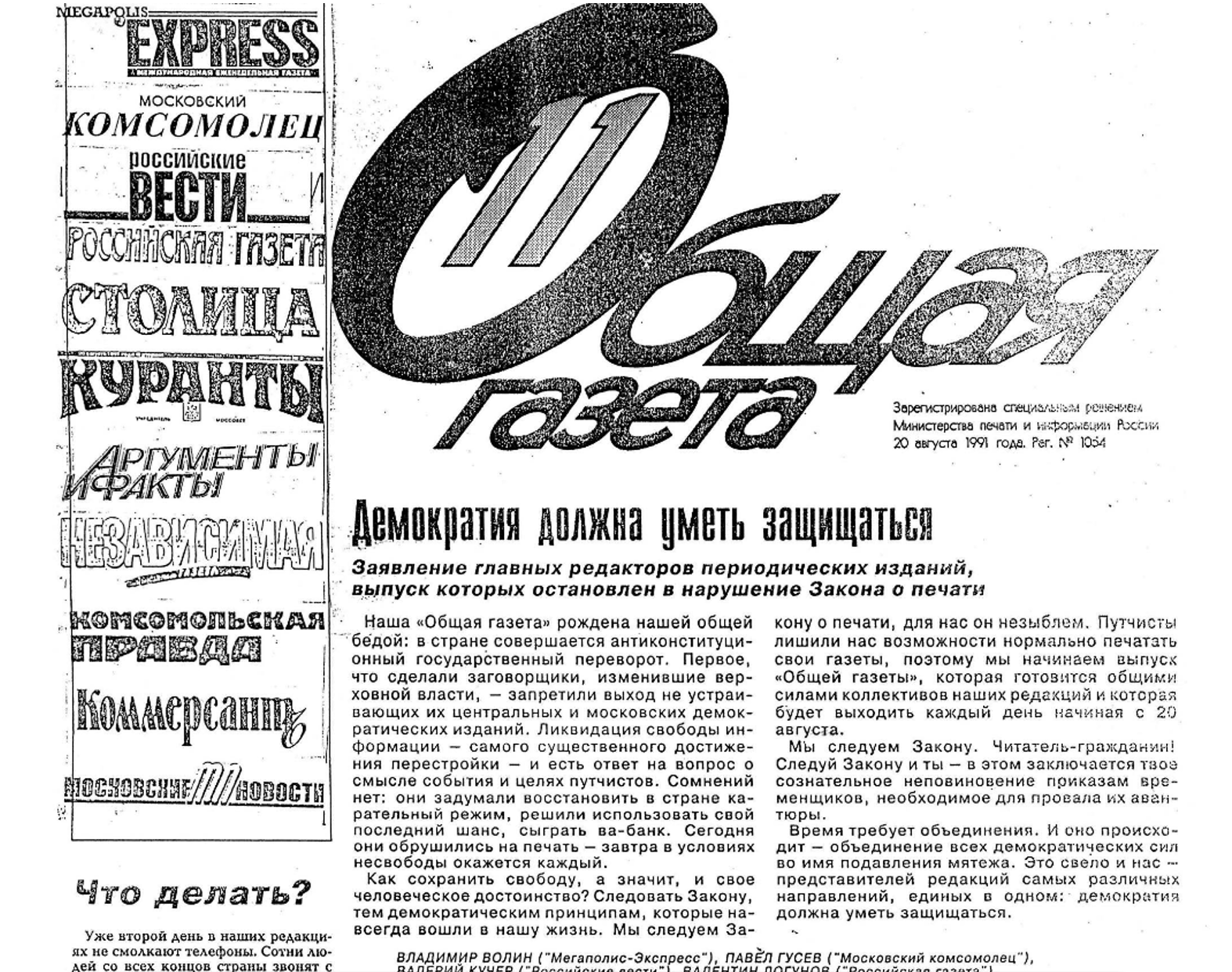Filed Under: Print > Journalism > "Democracy must know how to defend itself," Obshchaia gazeta
"Democracy must know how to defend itself," Obshchaia gazeta

By the second day of the three-day-long August Putsch of 19-21 August 1991, the self-styled GKChP or "State Committee on the State of Emergency" had shut down many of the newspapers that had gained a hard-won independence during perestroika. In response, the editors of Nezavisimaya Gazeta (Independent Newspaper), Argumenty i fakty (Arguments and Facts), Kommersant, and others banded together and formed Obshchaia gazeta, or "Common Paper." Depicted is the front page of the paper's first issue, which featured a jointly authored article entitled "Democracy must know how to defend itself: A declaration by the editors-in-chief of periodicals whose publication has been stopped in violation of the [1990] Law on the Press." The first line of the article reads: "Our 'common paper' was born of a common misfortune: the anti-constitutional coup d'état that this country is currently experiencing." Obshchaia gazeta's staunchly pro-Gorbachev, pro-reform position exemplified the Russian media's general hostility toward the putschists and galvanized resistance. By 21 August 1991, the putsch was over: the GKChP capitulated and Gorbachev returned to Moscow. By 24 August, the CPSU was no more; the Union it had governed for over 70 years would soon follow. Obshchaia gazeta ceased to exist shortly after the coup's end, but was revived in the mid-1990s as the press organ for the Yabloko party. In 2002, after years of financial difficulties, the publication was purchased by business magnate Vyacheslav Leibman, who promptly shuttered it.